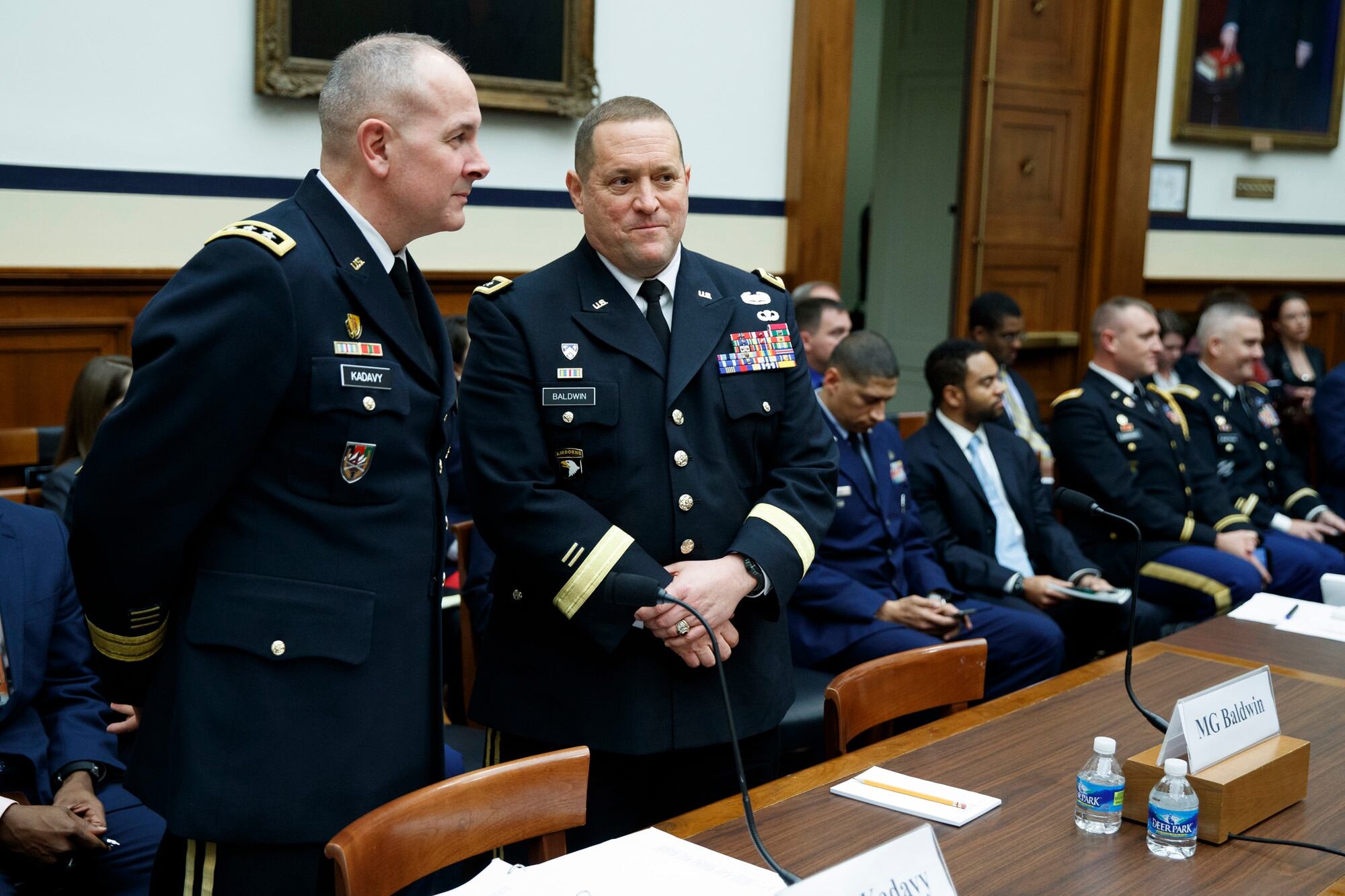California National Guard officials acknowledged their moves to recoup decade-old bonuses from troops has hurt public faith in their operations, but they believe military leaders are on the right path to fixing the problem.
"We are going to have to re-establish trust with our military families and recruits," said Maj. Gen. David Baldwin, Adjutant General of the California National Guard, in testimony on Capitol Hill Wednesday. "That burden will be on us."
The high-profile hearing comes almost two months after national attention over the bonus scandal, which involved up to 17,000 soldiers ordered to return thousands in payouts.
Guard officials acknowledged Wednesday that many of those cases did not involve wrongdoing by troops who accepted the money, but said Defense Department rules and regulations mandated recoupment efforts anyway.
Pentagon officials in October ordered a halt to all of the bonus clawbacks while the cases are reviewed and new appeals processes are established. Congress is also considering legislation that would force Guard officials to prove fraud before going after those payouts, instead of putting the burden of innocence on veterans.
The bonus recoupments began following a series of fraud cases involving California Guard officials, where supervisors were found to be improperly (and in some cases illegally) awarding recruiting and retention bonuses at the height of the Iraq and Afghanistan wars.
Guard leaders had told lawmakers they would seek repayment of those improper bonuses, but lawmakers said they were not informed of the scope or inefficient processes for that work.
An investigation from the Los Angeles Times found numerous veterans forced to repay the bonuses later faced significant financial problems, including damaged credit reports and near bankruptcy.
"These recruits put their lives in the hands of their recruiters," said Rep. Paul Cook, R-Calif. "We betrayed the trust of these troops, and there is no excuse for that."
Peter Levine, acting Undersecretary of Defense for Personnel and Readiness, told lawmakers that Pentagon officials were not involved in the initial decision, but "we missed this." He said officials are working now to ensure that bonus mistakes are never again ignored for years.
"Recoupment is an ordinary fact of life in the military, our pay systems are not as perfect as we’d like them to be," he said. "But the California National Guard cases are particularly egregious cases."
Defense officials have not promised to waive the veterans’ debts, but have begun putting in place new appeals processes for individuals still facing recoupments. Levine said he expects fewer than 2,000 veterans to be required to repay bonuses once the review is complete.

Army National Guard Lt. Gen. Timothy Kadavy, left, talks with California National Guard Adjutant General Maj. Gen. David Baldwin on Capitol Hill in Washington, Wednesday, Dec. 7, 2016, before a House Military Personnel subcommittee hearing on the "California National Guard Repayment Issue."
Photo Credit: Evan Vucci/AP
They also have instructed defense finance officials to reach out on behalf of affected veterans, to help repair their financial histories.
California Guard officials said they regret not better emphasizing the clawback issue in recent years, a move that left lawmakers unaware of the scope and seriousness of the problem.
Pentagon officials are expected to report back on their review next summer. Follow @LeoShane
Leo Shane III covers Congress, Veterans Affairs and the White House for Military Times. He can be reached at lshane@militarytimes.com.
Leo covers Congress, Veterans Affairs and the White House for Military Times. He has covered Washington, D.C. since 2004, focusing on military personnel and veterans policies. His work has earned numerous honors, including a 2009 Polk award, a 2010 National Headliner Award, the IAVA Leadership in Journalism award and the VFW News Media award.



